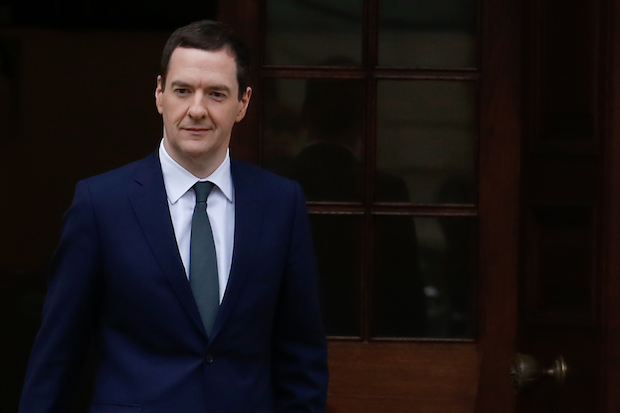George Osborne’s doomsday warning over Brexit has an odd historical echo to it. Take James Rothschild’s letter to his brother in 1831, just months before the Great Reform Act was passed the following year. He warned about how ‘the infamous liberal spirit’ could affect markets. ‘Let us get down to the nitty gritty,’ he said. ‘We fell some 30 per cent (in Paris) and I hope To God this will not be repeated this time in England.’ It turns out that historically international financiers have not been the hugest fans of popular revolts.
The parallels with the stark predictions regarding Brexit from the Treasury, the OECD, and bankers willing to lend their names to open letters 180 years later are striking. To be fair to Rothschild, his gloomy predictions were at least vaguely realistic. However, the similarities echoing through the ages can still tell us something. It seems that for a certain, rentier class, a neat, predictable market is preferable to messy freedom. And this, it seems, applies even when something badly needs reform: such as in the case of the British Parliament in the 1830’s. Or the European Union today.
So was it just Rothschild who warned of an economic bloodbath if the Great Reform Act was passed? No, if this Harvard study is anything to go on. According to the research, the bond markets echoed these dire warnings of what might happen if the 1832 Act’s modest proposals of abolishing rotten boroughs and providing some of Britain’s growing middle class with the vote, were passed. Bond yields skyrocketed on Britain’s three per cent consol bond as popular unrest and political deadlock on the Reform Bill caused markets to perceive a greater political risk on British government debt. On 12 May 1832, the Times referred to the bond market as a ‘barometer of the agitation which is working the public mind.’ It seems that Rothschild wasn’t alone in his worries.
But what happened after the Great Reform Act was passed? Did the dire warnings materialise? In fact, it seems Rothschild need not have panicked. Once the passage of the Great Reform Act was assured, bond yields had evidently peaked. A short time later, they returned to their mean level on the passing of the act. What’s more, this process was repeated again and again as Parliament embarked on a series of reforms throughout the 19th Century, which led to Britain becoming a full democracy. Ahead of the 1867 Reform Act, bond yields spiked before returning to normal. The same was seen in the Chartist Agitations during the 1840’s. Once reform was enacted, prices returned to normal and were mollified by the institutional reform taking place.
This precedent is apt when looking at today’s debate over the EU referendum. The Remain campaign have been unable to articulate any message defending the ‘nondemocratic elites’ of the European Commission and have instead focused solely on the market risk. What the bond data from 19th Century Britain shows, however, is that markets are always jittery when confronted with popular democracy and are not the best judge of whether a reform should take place. This pattern of a continual spike followed by calm once the reform has passed could equally apply to a possible Brexit.
James Rothschild was certainly not the only establishment figure who was worried by the proposed changes. In 1831, the Duke of Wellington wrote in his diary, ‘I don’t in general take a gloomy view of things but I confess I can not see what is to save the Church, or property, or colonies or union with Ireland or eventually monarchy if the Reform Bill passes.’ From a Whig point of view, the Iron Duke was on the wrong side of history, as the 1832 Reform Act set the way for Parliament to become a representative democracy. These political freedoms were won in the teeth of the same market uncertainty so well-articulated by the Remain camp and its followers today.






Comments